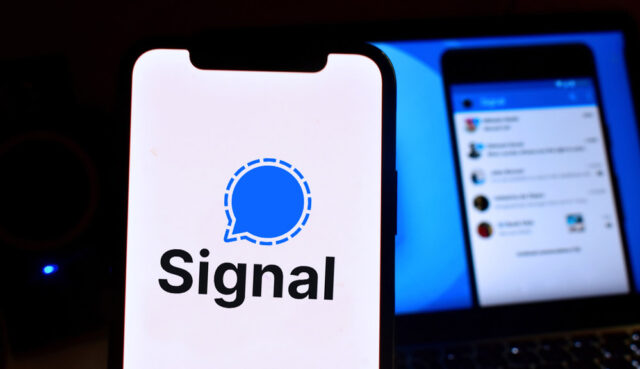Last week, The Atlantic published an explosive report claiming that its editor-in-chief, Jeffrey Goldberg, was invited to a “Principals Committee (PC) Small Group” discussion on Signal, where Cabinet officials discussed plans to strike the Houthi rebels in Yemen. Sensitive details—including the iconic who, what, where, when, and how of military operations—were publicly disclosed.
Although the Administration denied that classified information was shared, Senate Armed Services Committee Chairman Sen. Roger Wicker, R-Miss. and Ranking Member, Rhode Island Sen. Jack Reed, called for the Defense Department Inspector General (IG) to investigate the incident.
The story quickly gained “legs” beyond the Washington Beltway. According to the first poll out on the national security breach, 3 out of 4 Americans— including 60% of Republicans—believe the use of a Signal group chat to discuss military strikes is a serious problem.
Thus far, the Administration’s efforts to downplay the explosive report have failed to quell the controversy, even as White House officials initially said they believed it would die down.
President Trump, Secretary of Defense Pete Hegseth, National Security Adviser Mike Waltz, and Director of National Intelligence Tulsi Gabbard have all denied that classified information was leaked. Yet 74% of Americans believe that the discussion of impending strikes was a very (53%) or a somewhat (21%) serious problem. 28% of Republicans said it was a “very serious problem.”
Here’s a stunning statistic: A higher share of respondents said that “SignalGate” was “a serious problem” than those who, in past polls, considered Secretary of State Hillary Clinton’s use of a private email server a “serious problem.”
“SignalGate” has become a distraction and a cudgel. It’s past time for the Administration to change the narrative and reclaim the moral high-ground—all in ten simple steps:
- Signal is a commercial privacy app which, while encrypted, is not certified by the National Security Agency for secure government communications. The NSA is the sole authority regarding Communications Security (COMSEC).
- Signal was introduced into government communications systems by the Biden administration in early 2021 due to misguided COVID isolation protocols. Its use continued after the pandemic ended, inculcating dangerous COMSEC habits which compromised Operational Security (OPSEC).
- Consequently, for 4 years, highly sensitive and likely classified interactions took place on an unapproved platform, potentially causing irreparable damage.
- This is a critical issue which must be promptly investigated to determine:
- • Was Signal used for all the Cabinet-level PC and National Security Council meetings that must have been held before, during and after the disastrous withdrawal from Afghanistan?
- • Was the Abbey Gate debacle due to a security breach? Thirteen brave Americans died, as did thousands of our Afghan allies. Billions of dollars’ worth of US equipment were left behind, arming the Taliban and adding to the global weapons black market.
- • Was Ukraine discussed on Signal? Were those “chats’ compromised by Vladimir Putin, as Russia planned and conducted its bloody invasion? Who else might have benefited from the Biden national security team’s lax OPSEC and COMSEC protocols?
- • Were the October 7th, 2023, Hamas invasion of Israel, the brutal massacre of 1,200 innocent civilians, and the ensuing war in Gaza also discussed on Signal? Were these “chats” compromised by Iran which, in turn, guided its proxies on seven fronts?
- We simply don’t know who was looped into those sensitive “chats” by Biden’s team—deliberately or inadvertently—during the most perilous times since the 1962 Cuban Missile Crisis. Those debacles and their disastrous consequences must be investigated to determine if OPSEC and COMSEC breaches played a part.
- Our administration has been in office for less than 100 days. Our Cabinet officials have been confirmed by the Senate even more recently. While we take full responsibility for the mistakes made, we inherited broken protocols. Mr. Goldberg, while failing to announce his presence and leave the chat—as any patriotic American would have done—inadvertently did us a favor by exposing this long-standing vulnerability. A vital lesson was learned; the security gap was plugged.
- Fortunately, the operation against the Houthi terrorists was flawlessly executed. The only casualties were the intended targets.
- This administration takes national security very seriously. From this point forward, all communications at the Cabinet level—as well as all classified discussions across the US Government—are to follow appropriate COMSEC and OPSEC protocols.
- Principals Committee and National Security Council meetings will take place—as they have since 1948, except under the Biden regime—in the most secure place on the planet: the White House Situation Room.
- Thank you, Mr. Goldberg, for alerting us to an ongoing national security vulnerability created by Team Biden. We have now fixed it. Let’s move on.


